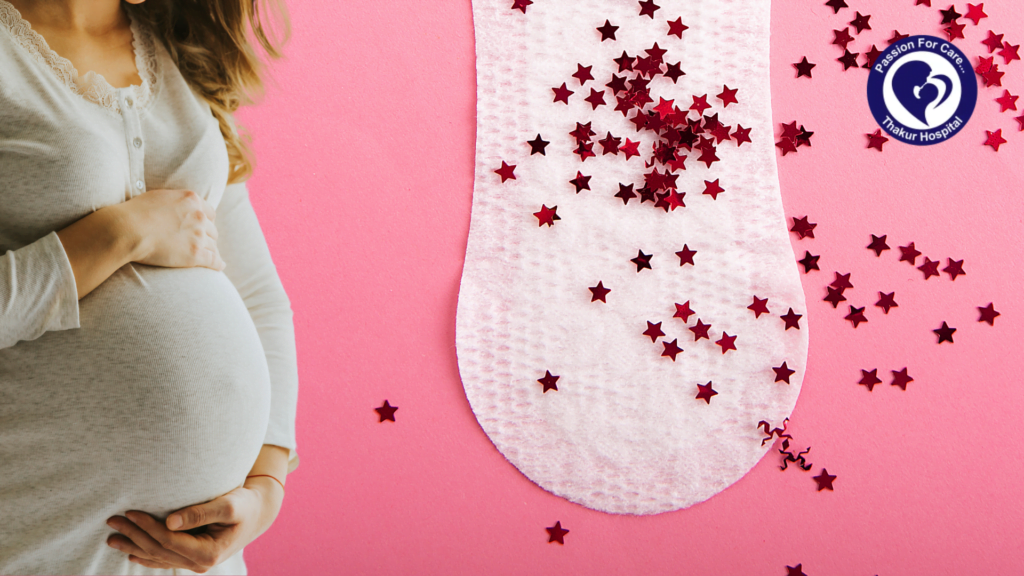When it comes to reproductive health, many myths and misconceptions can cause confusion. One frequently asked question is whether it’s possible to get pregnant from unprotected sex during your period. Let’s delve into this topic and clarify the facts.
Understanding the Menstrual Cycle
To understand the possibility of pregnancy during your period, it’s important to grasp how the menstrual cycle works. The cycle is typically around 28 days, though it can vary among individuals. Here’s a breakdown:
- Menstrual Phase (Days 1-5): This is when menstruation occurs, with the shedding of the uterine lining resulting in bleeding.
- Follicular Phase (Days 1-14): Overlaps with the menstrual phase initially and extends until ovulation. This phase involves the maturation of follicles in the ovaries.
- Ovulation (Around Day 14): Mid-cycle, an egg is released from the ovary and travels down the fallopian tube. This is the most fertile period.
- Luteal Phase (Days 15-28): Post-ovulation, the uterine lining thickens to prepare for a potential pregnancy. If implantation doesn’t occur, menstruation begins.
Can You Get Pregnant During Your Period?
While it is relatively unlikely, pregnancy from unprotected sex during your period is not impossible. Here’s why:
- Sperm Lifespan: Sperm can survive in the female reproductive tract for up to 5 days. If you have a shorter menstrual cycle and engage in unprotected sex at the end of your period, the sperm may still be viable when you ovulate shortly after.
- Irregular Cycles: Women with irregular cycles or those who experience early ovulation might find that their fertile window overlaps with their period.
- Breakthrough Bleeding: Some women experience bleeding that isn’t menstruation but occurs around the time of ovulation. This could lead to confusion about fertility timing.
Factors Influencing Pregnancy Chances
Several factors can influence the likelihood of getting pregnant from sex during your period:
- Cycle Length: Shorter cycles may result in ovulation occurring closer to the end of your period.
- Timing of Ovulation: Ovulation can vary, so if it happens soon after menstruation, the chances of pregnancy increase.
- Consistency in Cycle: Regular cycles allow for more accurate prediction of ovulation, but irregular cycles can complicate this.
What to Do If You’re Concerned
If you’re concerned about the possibility of pregnancy, here are some steps to consider:
- Take a Pregnancy Test: If you miss your next period or experience pregnancy symptoms, taking a home pregnancy test can offer early results.
- Consult a Healthcare Provider: For a more accurate assessment and personalized advice, consulting a healthcare provider is recommended. They can offer guidance based on your specific situation.
For Expert Gynecological Services, Visit Thakur Hospital
If you’re seeking expert advice on reproductive health or pregnancy concerns, Thakur Hospital is here to help. It’s experienced gynaecologist in karnal can provide thorough consultations and guidance tailored to your needs.
Preventive Measures
To prevent unintended pregnancy, consider the following contraceptive options:
- Condoms: A barrier method that also helps protect against sexually transmitted infections.
- Birth Control Pills: Hormonal pills that prevent ovulation and regulate menstrual cycles.
- Intrauterine Devices (IUDs): T-shaped devices inserted into the uterus to prevent pregnancy.
- Contraceptive Implants: Small rods placed under the skin that release hormones to prevent pregnancy.
For more information on these methods and to determine which is best for you, consult with the specialist at best maternity hospital in karnal- Thakur Hospital.
Conclusion
While it’s less common to get pregnant during your period, it is indeed possible due to factors such as sperm lifespan and cycle irregularities. Understanding your menstrual cycle and utilizing effective contraception can help manage reproductive health.
For expert advice and support, contact the best gynaecology hospital in karnal- Thakur Hospital. Their dedicated team is ready to assist you with any concerns you may have.
References:
- American College of Obstetricians and Gynecologists – Pregnancy and Fertility
- Mayo Clinic – Menstrual Cycle and Ovulation
- WebMD – Can You Get Pregnant During Your Period?



